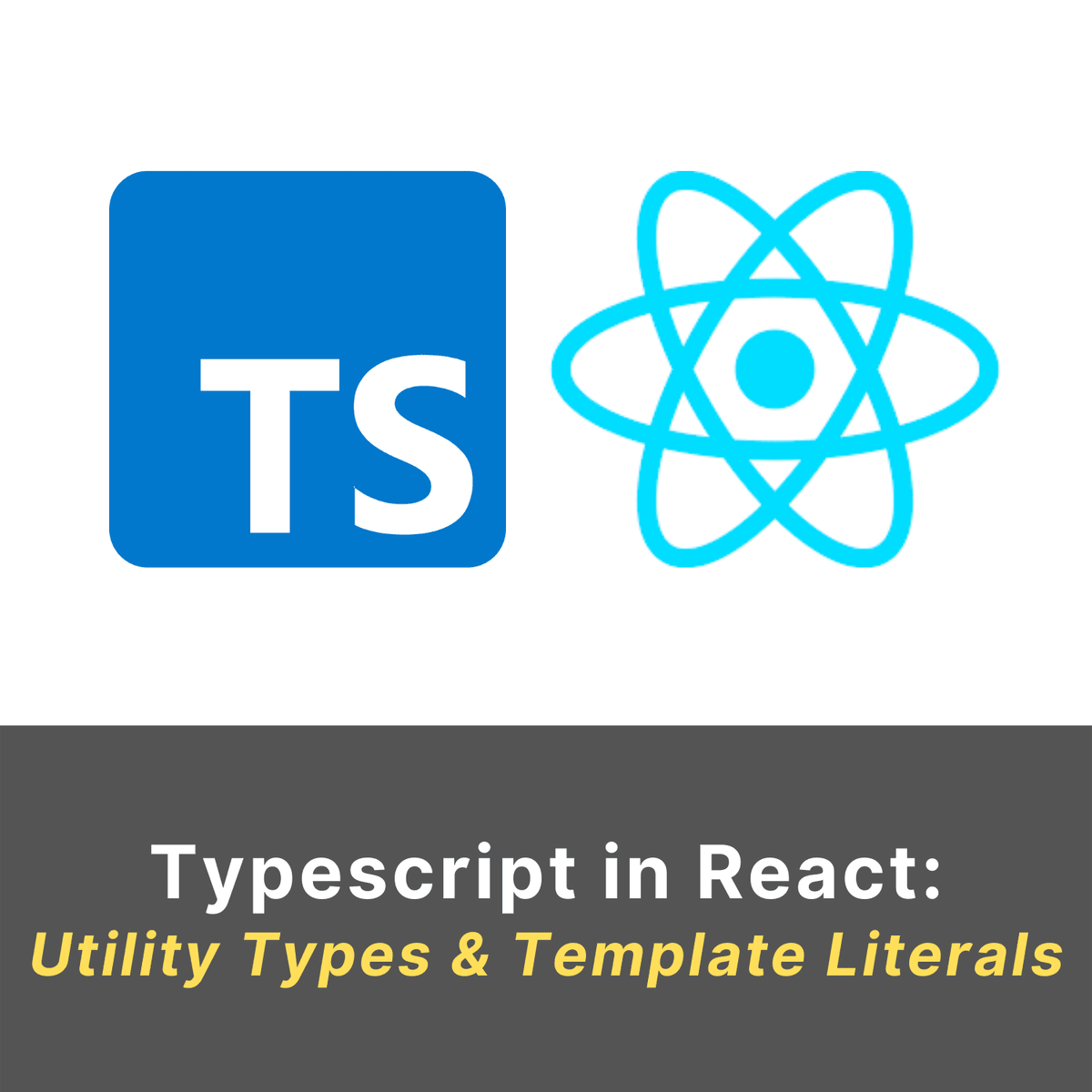
By the end of this course you will be able to start working with utility types and template literals in React applications. We will start by focusing on the core utility types reinforced by code examples which start off simple to drill the concepts, and toward the end we gradually increase the complexity and variety of real world examples of higher order component logic utility.
Read more
By the end of this course you will be able to start working with utility types and template literals in React applications. We will start by focusing on the core utility types reinforced by code examples which start off simple to drill the concepts, and toward the end we gradually increase the complexity and variety of real world examples of higher order component logic utility.
By the end of this course you will be able to start working with utility types and template literals in React applications. We will start by focusing on the core utility types reinforced by code examples which start off simple to drill the concepts, and toward the end we gradually increase the complexity and variety of real world examples of higher order component logic utility.
This course is aimed at developers who are familiar with React in general and Typescript specifically, understand the basics well, and would like to have some more experience, especially using some of the more advanced and dynamic development patterns in React.
What's inside
Syllabus
Good to know
Save this course
Activities
Review core utility types
Show steps
Reviewing utility types used in Javascript, React, and Typescript will strengthen your knowledge of the syntax and help you to approach the content more confidently.
Browse courses on
Higher-Order Components
Show steps
-
Read documentation on utility types in React and Typescript
-
Review examples of advanced React utility types from Github
-
Complete online quizzes on core Javascript utility types
Learn React Intermediate Concepts with Udemy
Show steps
Go through this course to reinforce your understanding of basic React concepts and syntax, which will be necessary to optimize your learning in this React course.
Browse courses on
React Hooks
Show steps
-
Create a Udemy account if you don't already have one.
-
Search for the course 'React - The Complete Guide (incl Hooks, React Router, Redux)
-
Enroll in the course and begin working through the lessons.
-
Complete the quizzes and exercises to test your understanding.
-
Join the course discussion forum to ask questions and get help from other students.
Show all two activities
Review core utility types
Show steps
Reviewing utility types used in Javascript, React, and Typescript will strengthen your knowledge of the syntax and help you to approach the content more confidently.
Browse courses on
Higher-Order Components
Show steps
- Read documentation on utility types in React and Typescript
- Review examples of advanced React utility types from Github
- Complete online quizzes on core Javascript utility types
Learn React Intermediate Concepts with Udemy
Show steps
Go through this course to reinforce your understanding of basic React concepts and syntax, which will be necessary to optimize your learning in this React course.
Browse courses on
React Hooks
Show steps
- Create a Udemy account if you don't already have one.
- Search for the course 'React - The Complete Guide (incl Hooks, React Router, Redux)
- Enroll in the course and begin working through the lessons.
- Complete the quizzes and exercises to test your understanding.
- Join the course discussion forum to ask questions and get help from other students.
Career center
React Developer
TypeScript Developer
Front-End Developer
Software Engineer
Full-Stack Developer
Web Developer
Back-End Developer
Data Scientist
Machine Learning Engineer
DevOps Engineer
Product Manager
Technical Writer
UX Designer
Business Analyst
Project Manager
Reading list
Share
Similar courses
OpenCourser helps millions of learners each year. People visit us to learn workspace skills, ace their exams, and nurture their curiosity.
Our extensive catalog contains over 50,000 courses and twice as many books. Browse by search, by topic, or even by career interests. We'll match you to the right resources quickly.
Find this site helpful? Tell a friend about us.
We're supported by our community of learners. When you purchase or subscribe to courses and programs or purchase books, we may earn a commission from our partners.
Your purchases help us maintain our catalog and keep our servers humming without ads.
Thank you for supporting OpenCourser.



